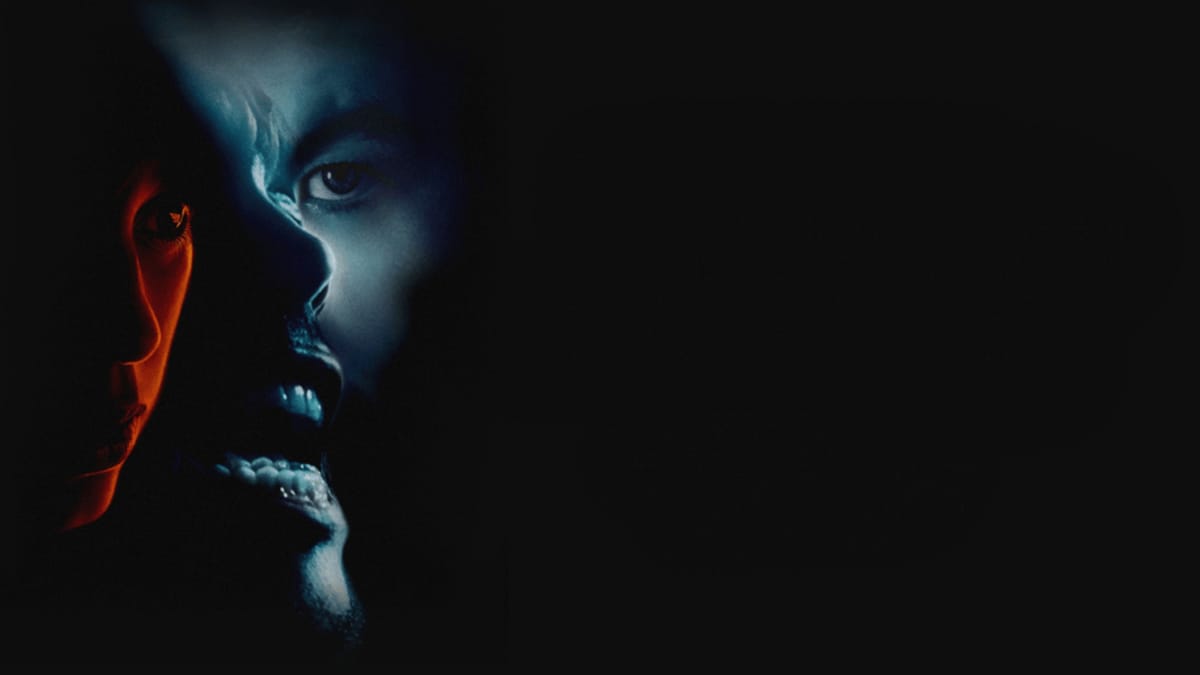Hurry Up Tomorrow

From his very first feature, director Trey Edward Shults has excelled in filmmaking as visual art. Krisha, a movie tiny in both scope and scale, was filmed with such vivacity that you couldn't help but get sucked into the protagonist's headspace as she attempted to reinsert herself into her family's life. His approach is always impressionistic, seeking to convey the internal life of his characters through flashy camera techniques, frequently utilizing abstract color swatches and soft focus and long shots and oners and an ever-moving camera. The loud, in your face athleticism of his camera and corresponding fantastic sound design effectively carry you through the down moments of the plot, giving your attention something to grab on to. Which is fortunate, as he's yet to blossom as a writer.
Hurry Up Tomorrow is actually his first shared writing credit, although his two co-writers don't have much of a pedigree. They do have notoriety, although, as co-creators and co-writers of HBO's highly controversial and much maligned mini-series The Idol. Reza Fahim (also a producer) is best known for his work on that series, and Abel Tesfaye (also the lead actor) is of course far better known as musician The Weeknd. Given that this movie is a tie-in to Tesfaye's most recent album, a fact obscured by its release over three months ago, it seems he's trying to make a splash. Based on the early reactions, his bid fell flat on its face.
Honestly? Fair enough. The dialog is quite poor, and while there's more to a script, the characters' style of speech and the topics they discuss are so fundamental to the experience of the movie that most actors are going to have a hard time accommodating its glaring weaknesses. Jenna Ortega and Barry Keoghan do an admirable job making something out of some incredibly cliched speeches, but there's just so little for them to work with. Especially since the plot is also kind of a mess. Characters act in mystifying ways, or we join them mid-action and only find out what was going on much later, and only vaguely. To say nothing of the extremely strange part when Anima (Ortega) goes all American Psycho and starts breaking down the brilliance of "Blinding Lights" and "Gasoline" to Abel (Tesfaye, as a fictionalized version of himself) while dancing and lip-syncing along to them. The self-indulgence of having her call his own songs underappreciated is almost undercut by it coming at a moment we're inclined to dismiss everything she says and that finds Abel in a hell of his own design.
Almost.
As the story barreled towards its conclusion, it became clear that the narrative awkwardness was largely driven by a desire to physically manifest his inner life, a Trey Edward Shults specialty. The totality of the film reads as an extended visualization of the raw emotional process of pouring your soul into your music. The first half sees his decisions and attention (and ultimately self-medication) heavily influenced by his manager Lee (Keoghan), whose loyalties lie somewhere between their friendship and keeping the gravy train flowing. When Abel meets mega-fan Anima after a disastrous show, she quickly takes over Lee's role, even cutting off his access to Tesfaye. She's an impulsive, emotional, all-or-nothing person who professes to deeply care about and identify with him, talking at length about how she feels the new, unfinished song he plays for her (the movie's namesake track) is about her. These are the two sides of his psyche at war, business considerations vs. his soul. It's not particularly subtle (consider her name), but it's not really trying to be. It might not be as brilliantly executed as it thinks it is, but the extended allegory works pretty well to craft an enjoyable thriller that you feel even more strongly as the power struggle between Lee and Anima intensifies, with Abel stuck in the middle.
As I mentioned up top, Shults once again deploys his expertise in imparting a character's experience to the audience. The swirling chaos around Abel and his feeling boxed in is conveyed wonderfully through long takes combined with an unsettled camera and fluctuating aspect ratio. It makes the concert scenes incredibly lively and exciting, and the shots of Abel staring into the mirror incredibly haunting. The sound design is doing incredible things here. During the concerts, sure, but even something as small as playing music for Anima from his phone, which comes across clear and engrossing while retaining the tinny, clipped sound of even the best phone speakers. None of it is new exactly, but it's all so well deployed that it's hard to care.
The outcome is a highly flawed movie which nonetheless has more going for it than many a modern blockbuster. It doesn't seem like there will be much to glean on re-watches for all but the most dedicated fans of Tesfaye, but is worth experiencing once. It's a significant marker of change at the very least. Tesfaye is about to drop his pseudonym to record under his birth name, a choice staged dramatically in the film's finale, with the result being a new song tumbling out of him despite the extreme stress he's under. As for Shults, he's at a crossroads. His bag of tricks has carried him as far as it can, and the stagnation of his writing skills implies his only path forward in the industry is to start making the scripts of others. I hope he's willing to do so, as it would be a shame to lose such a lively visual storyteller due to pride.